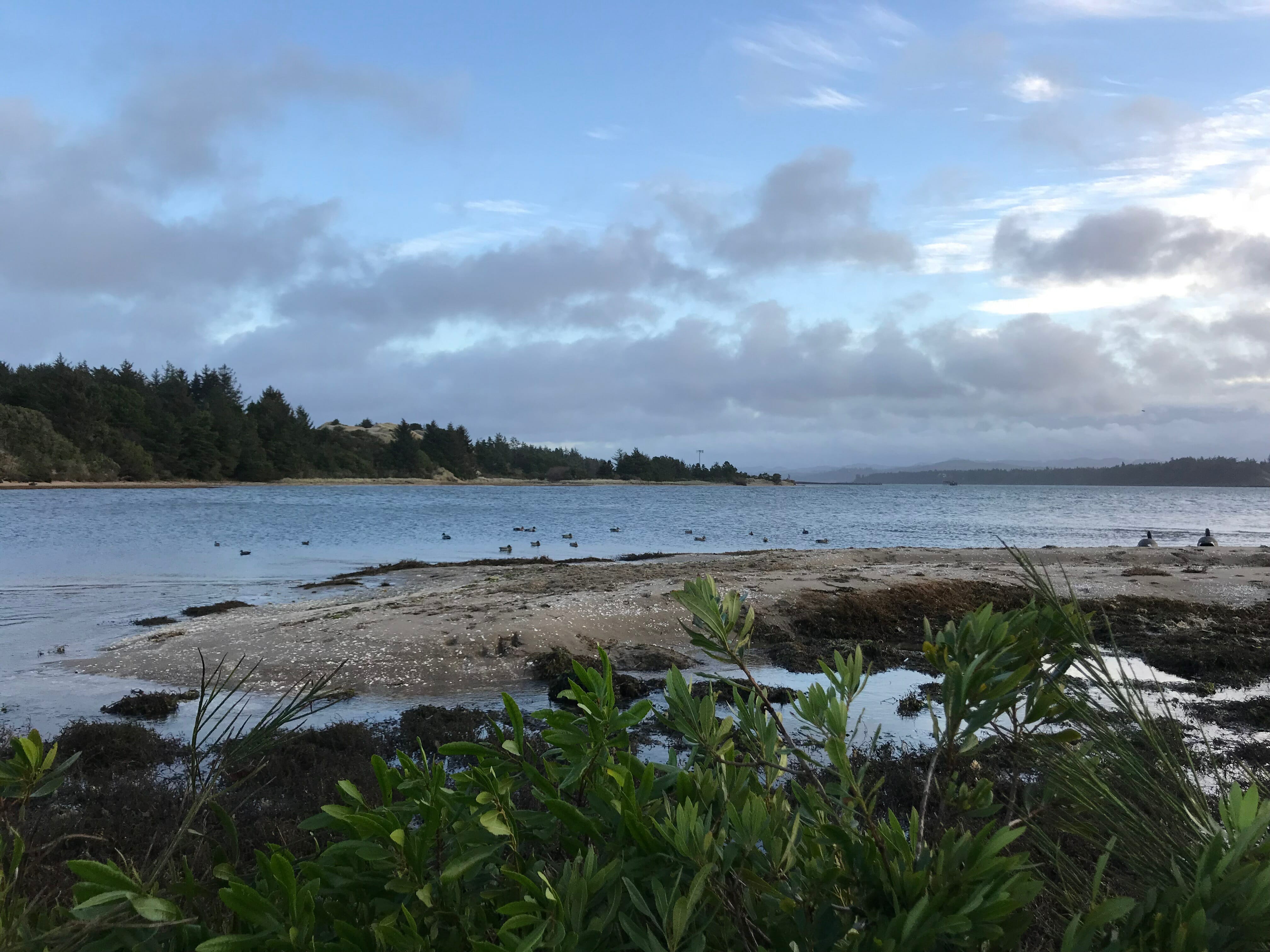The Oregon coast near the proposed site of the Jordan Cove LNG export terminal. Photo: Gary Vonderohe
By Kyle Smith
Last week, the Oregon Department of Environmental Quality (DEQ) denied the Clean Water Act Section 401 application for the Jordan Cove Liquid Natural Gas Project and the associated Pacific Connector Pipeline (collectively “Jordan Cove Project”). TU, other conservation organizations, and local landowners, businesses, and sportsmen all oppose the project due to the significant impacts construction and operations would have on iconic salmon and steelhead fisheries.
Proposed by Canadian development company Pembina Pipeline Corporation, the Jordan Cove Project would span more than 230 miles from Malin in south-central Oregon to an export terminal on Coos Bay. The LNG transport pipeline would cross more than 300 waters, many containing sensitive or listed fish species, including the Klamath, Rogue, Coquille, and South Umpqua rivers.
Construction of the pipeline could flush enough sediment into these streams and other waterbodies to be lethal for coldwater fish, cause significant ecological harm and degrade water quality.
“Southern Oregon is home to some of the most robust salmon, steelhead, and trout fisheries in the lower 48 states,” said Mark Rogers, chair of Trout Unlimited’s Oregon Council. “The Jordan Cove Project poses a major threat to those fisheries and the clean, cold water that support them, and we applaud DEQ’s decision to reject Jordan Cove’s application for a 401 certification.”
DEQ’s decision to deny the 401 application was based on the inability of the Jordan Cove applicants to demonstrate that the project would meet Oregon’s water quality standards and protect beneficial uses.
The Jordan Cove Project cannot be constructed without the state permit, and the permit denial represents a significant setback for Pembina and the project as a whole. However, DEQ’s denial was made “without prejudice,” meaning the applicants are free to re-apply if they address the concerns identified in the 200+ page denial document.
Especially in this era of warming climate and increasingly at-risk populations of anadromous fish, some waters – such as those that would be affected by the Jordan Cove project — are simply too valuable for their salmon and steelhead habitat and fishing opportunities to risk a huge energy development project. Trout Unlimited and our 3,000 members and supporters across Oregon will continue to advocate for cold, clean water and healthy coldwater fisheries across the state — and to ensure that any large-scale development or land use does not impair those values.
Kyle Smith is TU’s Oregon Field Coordinator, and former leader of the Bluebacks Chapter.



